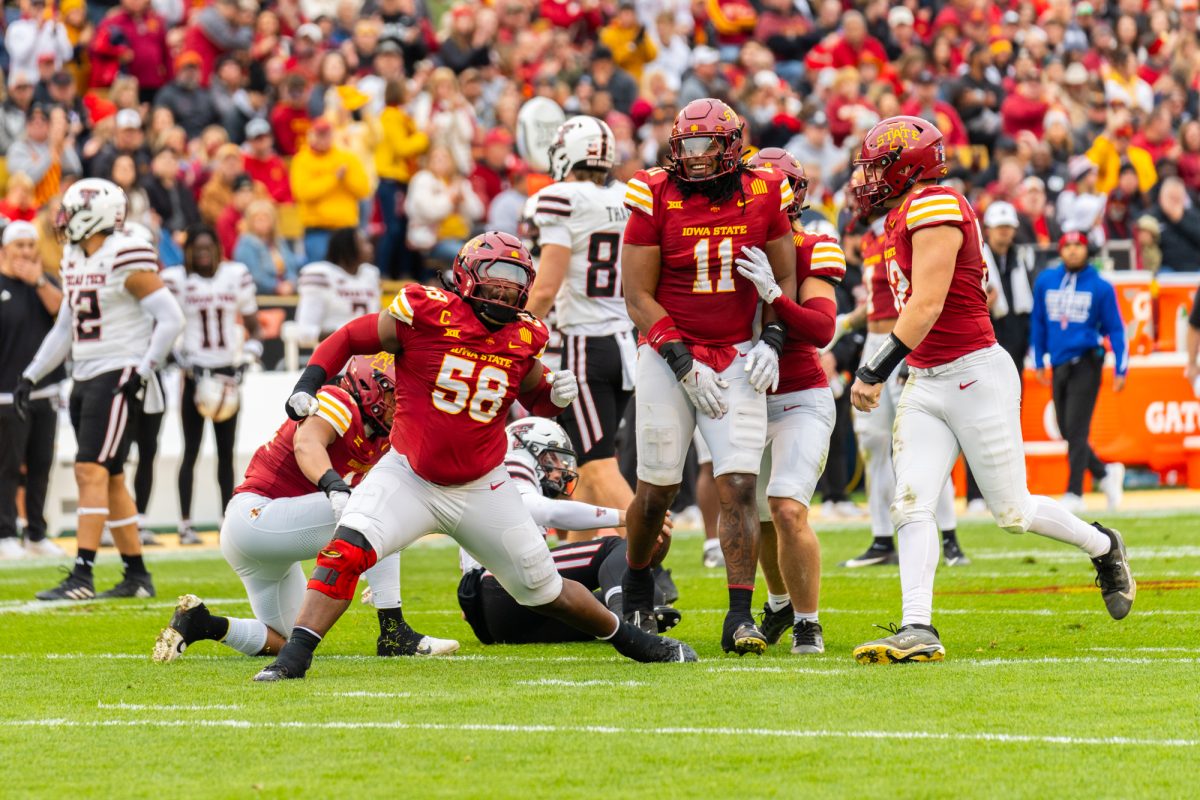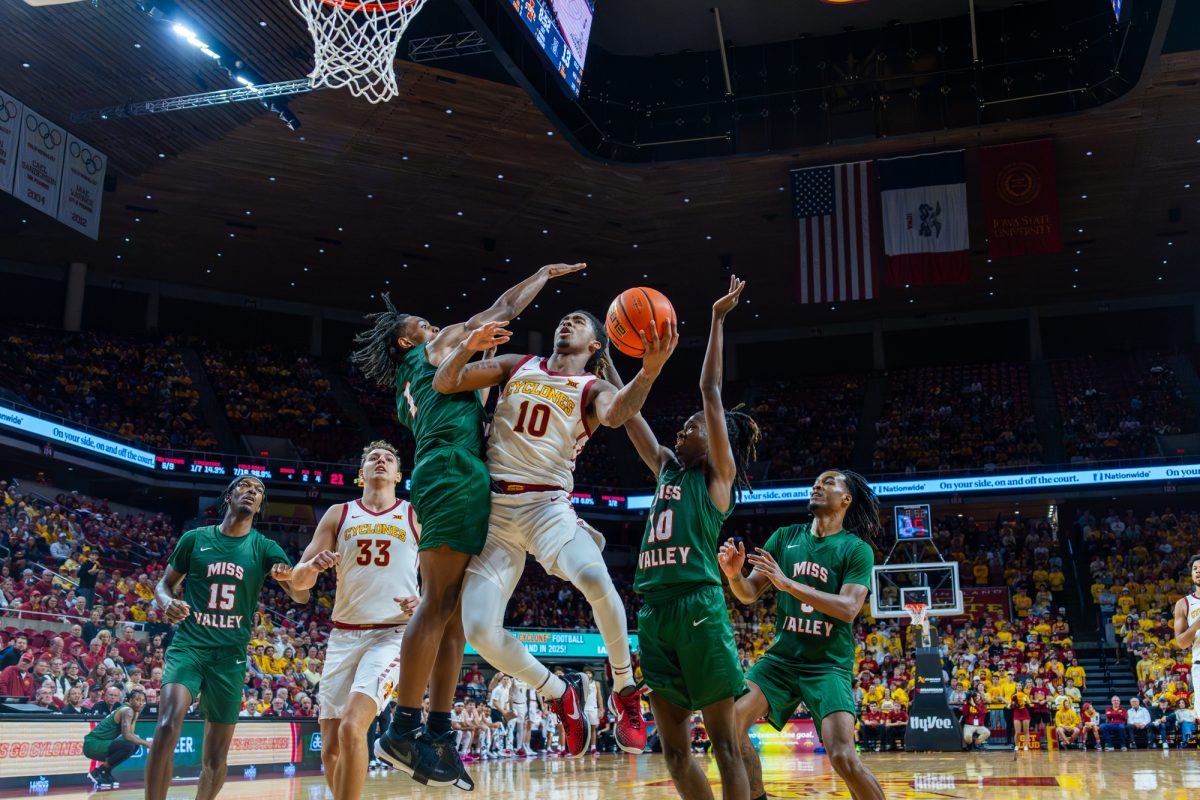And you call yourself a fan
February 11, 1998
I am not a sports fan. I just want to state that from the beginning. I do not hate sports. While I would never go so far as to instigate a world-wide ban on sports, I would not feel too awfully put out if someone else generated such a law. I do not relish the playing or watching of sports.
This attitude is backed up by years of in-the-field (if you’ll excuse the pun) research on the subject.
I began playing my first organized sport (softball) the summer when I was seven. In middle school I added basketball and volleyball to my activities roster. By my sophomore year, realizing I wasn’t meant to be a jock, I quit playing sports and began managing basketball and track. I officially switched from participant to spectator.
Now, I don’t normally subject anyone besides patient friends and nosy scholarship applications to my tedious r‚sum‚. So I tell you all this not under the delusion that any of you might care what athletic trials I have been through, but rather in hopes of establishing my authority to speak on the subject. (As if it were ever in doubt.)
Furthermore, having shown that I can knowledgeably speak about sports but while claiming not to be an actual fan of them, I feel compelled to share my observations on The Sports Fan. I am sorry to report that I have found the average Sports Fan to be lacking and in desperate need of reform.
First, Sports Fans take sports WAY too seriously.
It’s sad to say, but I imagine that a lot of people take more notice of Superbowl Sunday than they do of Martin Luther King Jr. Day. Whatever you may feel about the legitimacy of designating specific days of the year to celebrate the contributions of influential Americans of days past, I think you get my point. I think it is fairly obvious that MLK Jr. did more for this country by his civil rights reforms than legions of athletes are ever going to do by simply hitting, kicking, shooting or throwing a stupid ball.
Sports Fans need to put things into perspective and get a grip on reality.
Second, Sports Fans have forgotten the point of sports.
Sports were first born as a basic means of survival. Everyone “worked out” by cultivating crops, catching game or constructing shelter to sustain themselves and their families. Then when they were a little better off, athletics took the form of exercise to keep people from getting flabby.
After a while, it wasn’t enough for them to be fit themselves; they had to be faster, higher and stronger than the other guy. Pretty soon there was an audience sitting around watching the competition. Sports were born.
Good news for the advertising industry. Bad news for everyone else, because sports weren’t even about the thrill of competing anymore. They were about winning. Winners are better. Losers are … well, losers.
While most of us today may say “winning isn’t everything,” we usually add under our breaths “— it’s the only thing.” Too often peoples’ merit is measured not by their thoughts, beliefs or aspirations, but by what they’ve done on our little TV screens in the past and what they’d better do in the future.
Sports Fans need to remember that being a “winner” is one of the last things on which to base a character judgment of a person or group of people.
Third, Sports Fans have forgotten what it means to be a fan.
Example. The struggling ISU men’s basketball team has been catching a lot of heat from the public lately. People have even been bad-mouthing Coach Tim Floyd. “He must be taking coaching lessons from Dan McCarney.” (Sorry, Dan. I didn’t say it.) During last Wednesday’s game against Kansas, tons of people got up and left early when it became apparent to them that ISU was going to lose.
Is this the great fan support meant when commentators talk about Hilton Magic? Is this inspiration?
I notice everyone loves ISU’s women’s team now that they’re kicking butt (as it somehow makes up for all the time they’ve been virtually ignored in the past). I’d like to point out that Floyd is the same coach who took ISU to Kansas City to win the Big 8 tournament two years ago. Everyone loved him then too.
Some Sports Fans seem to think that being a Fan of a team means riding on the team’s glory when they’re doing well and bragging to friends when the team is on top. But if the team is in a slump or if they just plain suck, being a Fan means berating them with destructive criticism and just generally kicking them when they’re down.
Sports Fans need to stay in their seats, cheer (not just yell, cheer) and quit being so fickle.
Okay, now that every Sports Fan I know hates me, I will stop to concede that not every Sports Fan behaves the way I described above. To those of you who don’t, disregard what I have just said. Your ability to follow sports reasonably when so many others have gone so far astray is a credit to our ailing society. Kudos.
To the rest of you, if I’ve ruffled your feathers, then good. You got a problem with that? Bring it on. I may be a quitter, but I’m no wimp.
Juli Hisel is an undeclared sophomore from Richland.






